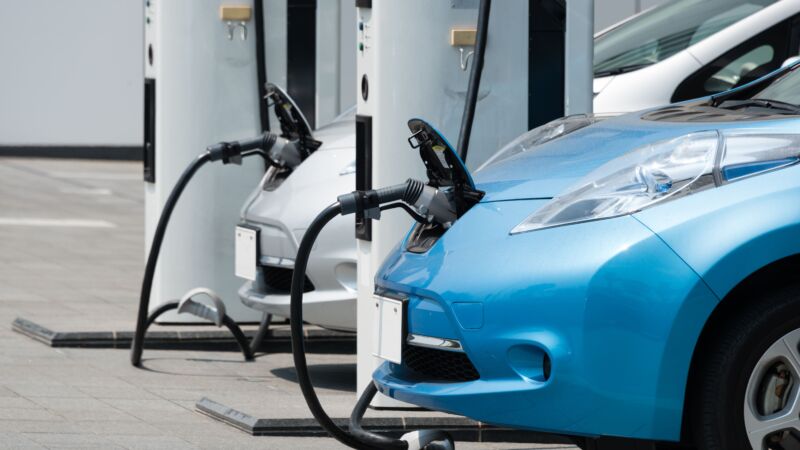Overview of credits available for used, commercial, and new EVs.
Jump to:
| What are the tax credits available for electric vehicles? |
| How does the electric vehicle tax credit work? |
| How to claim electric vehicle tax credits |
| Helping your clients with EV tax credits |
As the world shifts towards sustainable transportation, the IRS and many states are incentivizing the adoption of electric vehicles (EVs) through various tax credits. For accountants, understanding these tax credits is essential in ensuring clients make the most of their investment in clean vehicles.
What are the tax credits available for electric vehicles?
Tax incentives for electric vehicles are available at both at the federal and state level. Accountants must be aware of both federal tax incentives and state programs to maximize potential benefits for their clients.
From a federal perspective, there are several extensions and expansions of clean vehicle tax credits as part of the Inflation Reduction Act. To take advantage of these incentives, you must first determine whether your client is:
- Planning to buy a new clean vehicle;
- Looking to claim a credit for a new clean vehicle they already bought;
- Planning to buy or already bought a used clean vehicle; or
- Buying a vehicle for business use.
No matter the scenario, the seller must provide information about the vehicle’s qualifications at the time of sale. Sellers must also register their dealership online and report the same information to the IRS. If they don’t, the vehicle will not be eligible for the tax credit.
Now, let’s take a look at the various tax credits available for electric vehicles.
Used clean vehicle credit
Since January 1, 2023, individuals who buy a qualified used electric vehicle (EV) or fuel cell vehicle (FCV) from a licensed dealer for $25,000 or less, may be eligible for a used clean vehicle tax credit (also referred to as a previously owned clean vehicle credit). The credit equals 30% of the sale price up to a maximum credit of $4,000.
The credit is nonrefundable, so taxpayers can’t get back more on the credit than they owe in taxes—and they cannot apply any excess credit to future tax years.
At the time of sale, the seller must provide information about the vehicle’s qualifications. Sellers must also register online and report the same information to the IRS. If they don’t, the vehicle will not be eligible for the credit.
Purchases made before 2023 don’t qualify.
Commercial clean vehicle credit
Businesses and tax-exempt organizations that buy a qualified commercial clean vehicle may qualify for a clean vehicle tax credit of up to $40,000 under Internal Revenue Code (IRC) 45W. The credit equals the lesser of:
- 15% of the basis in the vehicle (30% if the vehicle is not powered by gas or diesel)
- The incremental cost of the vehicle
The maximum credit is $7,500 for qualified vehicles with gross vehicle weight ratings (GVWRs) of under 14,000 pounds and $40,000 for all other vehicles.
Credits for electric vehicles purchased before 2022
For new, qualified plug-in electric vehicles purchased in 2022 or before, taxpayers may be eligible for a clean vehicle tax credit up to $7,500 under Internal Revenue Code Section 30D.
The credit equals:
- $2,917 for a vehicle with a battery capacity of at least 5 kilowatt hours (kWh)
- Plus $417 for each kWh of capacity over 5 kWh
The maximum credit is $7,500. It is nonrefundable, so taxpayers cannot get back more on the credit than they owe in taxes—and they cannot apply any excess credit to future tax years.
Credits for electric vehicles in 2023 or after
If your client places in service a new plug-in electric vehicle (EV) or fuel cell vehicle (FCV) in 2023 or after, they may qualify for a clean vehicle tax credit.
At the time of sale, the seller must provide information about the vehicle’s qualifications. Sellers must also register online and report the same information to the IRS. If they don’t, the vehicle won’t be eligible for credit.
It is important to note that if your client takes possession of a new clean vehicle on or after April 18, 2023, it must meet critical mineral and battery component requirements to qualify for the credit. This applies even if they bought the vehicle before April 18. Find details in Q6 under Topic A in the IRS clean vehicle fact sheet.
As policies evolve, it’s essential to stay informed about changes in tax credits for electric vehicles. The landscape may shift, and new incentives could be introduced or changed throughout the year.
How does the electric vehicle tax credit work?
Tax incentives for electric vehicles are available at both at the federal and state level.
To illustrate how electric vehicle tax credits work, let’s take a closer look at Colorado’s clean vehicle tax incentive program. The Colorado Energy Office provides substantial incentives for the purchase or lease of new electric vehicles and plug-in hybrid electric vehicles, including tax credits for individuals and businesses.
Colorado taxpayers are eligible for a state tax credit of $5,000 for the purchase or lease of a new EV on or after July 1, 2023, with a manufacturer’s suggested retail price (MSRP) up to $80,000. Lease agreements must have an initial term of at least two years. Beginning January 1, 2024, Colorado residents purchasing an EV with an MSRP up to $35,000 will be eligible for an additional $2,500 tax credit.
This program offers valuable insights into how EV tax credits operate and emphasize how state-level tax incentive programs can boost investment in clean vehicles.
From a federal perspective, there are several extensions and expansions of clean vehicle tax credits as part of the Inflation Reduction Act. State level EV tax credits vary from state to state.
Accountants should advise clients on both federal and state electric vehicle tax credits to maximize their tax savings and investment in clean vehicles.
How to claim electric vehicle tax credits
To claim an EV tax credit for a vehicle purchased in 2023 or later, taxpayers must file Form 8936, Qualified Plug-in Electric Drive Motor Vehicle Credit (Including Qualified Two-Wheeled Plug-in Electric Vehicles) with their tax return. They will need to provide the vehicle’s VIN.
If your client missed claiming a credit for an electric vehicle purchased before 2022, they may be able to claim it by filing an amended return for the tax year when they took possession of the vehicle.
It is important to note that the credit for qualified 2-wheeled plug-in electric vehicles expired in 2022. If your client bought a 2-wheeled vehicle in 2021, but placed it in service during 2022, they may still be able to claim the credit for 2022. If they bought it after 2021, they cannot claim the credit.
BlogFor more information on claiming green tax credits, see our guide to environmental IRS forms. |
Helping your clients with EV tax credits
With legislation constantly evolving, staying abreast of ESG initiatives like renewable energy tax incentives and energy efficient tax credits can be complex. By understanding the details of tax credits at both the state and federal levels, you can help your clients make informed decisions that save them money and support the environment.
Stay up to date with changing EV tax credits and other green tax updates by utilizing Thomson Reuters Checkpoint Edge, a cutting-edge tax research tool informed by 680+ highly-qualified editors and outside practitioners.
Additionally, Thomson Reuters ESG solutions, including Checkpoint ESG Toolkit, helps equip tax, corporate, risk, and legal professionals to navigate environmental-related tax credits and incentives while ensuring compliance.
SolutionsSimplify complex ESG tax and finance issues with ESG solutions from Thomson Reuters. |
NewsletterStay up to date with the latest changes in ESG legislation with Checkpoint newsstand. |










